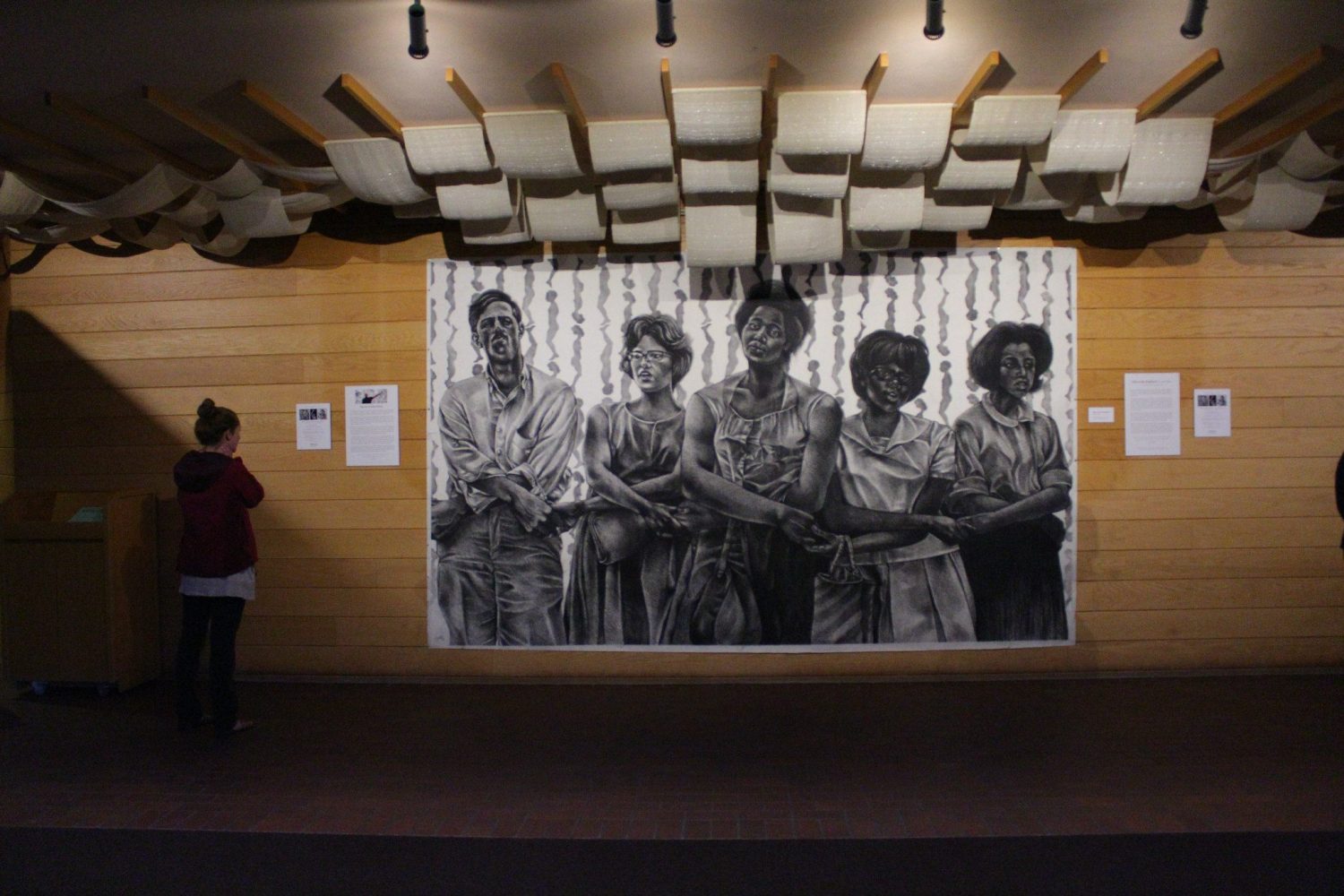They call it an uproar.
We call it an Uprising.
(Thousands of black children used as gator bait and target practice.)
We are tired of lip service.
We demand justice and equality.
Our lives matter.
Last week, as course advising marked the end of this semester, Baltimore was in flames and I could not stop thinking about it.
Another one. Another child killed. Another black mother in mourning. Another city in mourning.
Baltimore, a spring break trip destination, in the throes of a media frenzy concerning police brutality. Baltimore, the home of Dr. Christina Edmondson, dean of Intercultural Student Development.
This Baltimore was in mourning, and our community was preparing for a new semester, while Freddie Gray was being prepared for burial.
Yet, our campus was quiet about Freddie Gray. I observed a timidness by students and staff to broach the subject of the Baltimore riots, or “Uprising.”
I’m positive students had conversations among themselves and with allies on campus, but many more did not have a space to talk freely about the issues: police brutality, Baltimore and how it affects them.
We Are Calvin [too], a group of students committed to keeping Calvin accountable to its strategic plan for diversity and inclusion, wanted to create that space for students and others.
We needed space to share our frustrations, confusion and grief surrounding violence committed against black and brown bodies in Baltimore and in all cities across the U.S.
Often when racially-charged events occur, we have a panel, but there was not enough time to gather panelists, and the Uprising was fresh in our minds. The options were either act quickly or tweet about it.
The chapel is an ideal and open space, a welcoming space. It is common ground. And although the choir is an important asset to any conversation, it is important to have all voices sound off on the issues.
Our time was opened with prayer, ushering humility into the space. Dr. Edmondson shared a raw version of her piece for Christianity Today’s Hermeneutics titled “Good Cop, Bad Cop, and the Baltimore I Knew.”
She learned the gospel at New Shiloh Baptist Church, the site of Freddie Gray’s funeral, and it was there that she learned the importance of non-violent resistance from her late pastor Harold A. Carter, who marched on Selma.
She has deep ties with the city, and including her voice was important.
Then the floor was opened to anyone. A young woman shared her story, the story of a father on the front lines of the drug war. Another student shared why he wanted to become an officer, and still plans to pursue it, though he fears for his life.
A young woman from Chicago and another from New Mexico shared the ways in which they are personally affected by policing practices in their communities. So, how does police brutality affect our community?
In our homes it is called PTSD.
On our streets it is called normal.




